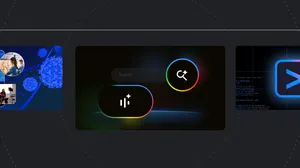Tribal schools embrace distance learning with Google tools
In the United States, there are 574 federally recognized tribal nations. Collectively they are referred to as “Indian Country,” but there is tremendous diversity among the tribes. Each has its own unique history, geography, culture and economy, as well as its own opportunities and challenges.
Far too often, we only hear about challenges facing these tribal nations and rarely hear about the solutions tribes create. In response, the Harvard Project on American Indian Economic Development founded Honoring Nations, a national awards program that spotlights success in tribal governance. Since 1998, Honoring Nations has awarded 136 tribal governance programs from over 100 tribal nations, highlighting key lessons that other governments, both Native and non-Native, can adapt for themselves. By sharing these lessons, we are changing the conversation from what isn’t working to what is. We also facilitate the sharing of practical tools to improve the strength and vitality of Indian Country.
In 2013, our team was introduced to the Google American Indian Network, an employee resource group made up of Google employees. We began working with and using a variety of Google tools to enhance our ability to share stories of success with tribal leaders and policymakers, from Google Cultural Institutes to Google Maps and Google Voyager. In December 2018, our efforts culminated in the launch of the Nation Building Toolboxes, based on Google Sites. So far we have released four toolboxes: Business Enterprises, Constitutional Reform, Justice Systems and a special COVID-19 toolbox, dedicated to sharing multimedia resources in public and health policy, which was created in collaboration with the Johns Hopkins University Center for American Indian Health.
Launched in April 2020 and updated daily, the COVID-19 nation-building toolbox responds to the complex challenges facing Indian Country due to the pandemic. The coronavirus is revealing the cracks in all societies, including tribal nations. However, in Indian Country, these crises are magnified by decades of underfunding of infrastructure, from facilities to water systems to broadband. In fact, an estimated 34% of American Indian households lack high-speed internet access. This impacts critical communications, including how students access distance learning. Without the ability—or tools—to connect remotely, American Indian students are at a significant disadvantage.
The Native American Advancement Foundation (NAAF), in partnership with the Tohono O'odham GuVo District, initiated a system of support to ensure the youth in their community didn’t fall behind during the pandemic. They integrated lessons from an Indigenous language learning resource, posted to our COVID-19 toolbox, from the Yurok Tribe in northern California. They also paired online resources with offline support through the distribution of educational learning packets, food, and supplies to households throughout the District. In addition, college students who returned home were recruited to provide remote tutoring to younger students.
After learning about their extraordinary efforts to meet the needs of their citizens, we shared the strategies used in Tohono O'odham through the COVID-19 toolbox, so other nations facing similar challenges could draw inspiration from their solutions. This knowledge sharing and exchange not only highlights the innovation in Indian Country, but is an incredible example of Indigenous reciprocity.
We live in a digital age, and what's key in Indian Country is that we embrace technology on our own terms. That’s why digital tools which enable communication are so important. Google understands the need for these tools, especially now, which is why they've committed $10 million in grants to support communities through Google.org's Distance Learning Fund.
It is our hope that the stories we share through Honoring Nations and the Nation Building Toolboxes arm leaders and policymakers with practical tools that help to strengthen their nations, on their own terms—and as Wet’suet’en Hereditary Chief, Satsan, says, “put a new memory in the minds of our children.”






